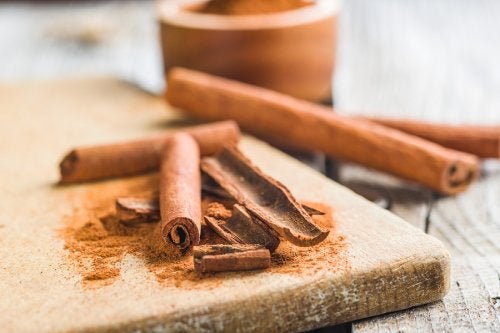Due to its ability to protect against fungi and nourish the soil, cinnamon is an excellent ally for gardening.

Cinnamon is an ingredient that has been used since ancient times in both gastronomy and natural medicine. However, few know that it is also an excellent ally to keep garden plants healthy without the need for harmful chemicals.
Although today there are fertilizers and pesticides that keep the garden in optimal condition, many have chosen to use cinnamon as a substitute. Not only is it cheaper than conventional options, but it is 100% ecological and safe.
Best of all, it has multiple functions, which will avoid having to purchase different solutions for each problem. Haven’t you used it yet? We tell you in detail how you can make it your best complement for gardening. Take aim!
Keeping garden plants healthy using cinnamon.
Cinnamon powder has interesting applications in the maintenance of plants. Although we have become accustomed to giving it exclusive use in the kitchen, it is actually very versatile in other household tasks.
1. Pest control.
Instead of buying expensive chemical pesticides for the garden, you can use a little cinnamon powder. Due to its pungent aroma and properties, this ingredient keeps mosquitoes and ants that damage plants away.
How to use.
- Take the amount of cinnamon powder you consider necessary and spread it around the plants or any other place where insects are concentrated.
- Repeat its use every 2 or 3 weeks.
2. Elimination of fungi.
To keep garden plants healthy, it is essential to have a product that keeps them free of fungi. Fortunately, thanks to its antifungal and disinfectant compounds, cinnamon can protect them against these microorganisms.
How to use.
- Sprinkle some cinnamon on the areas of the plant that show obvious signs of mold or mildew.
- Repeat your application in case they do not disappear after a few days.
3. Protect edible vegetables.
Nobody wants their vegetables to develop diseases, especially when they are still growing. The problem is that soil conditions and fungal growth can strike at any time. However, as a fertilizer option you can use the prodigious cinnamon.
How to use.
- Sprinkle some ground cinnamon on the ground, right around the base of the plant.
- Use it once a week.
4. Maintenance of cuttings.
There are currently several commercial products for successful planting of cuttings. However, in order not to spend money on it, it is worth trying a simple trick: apply cinnamon on the stem before planting them.
If there are gardening problems that prevent a good result, another option is to make a fungicide recipe combining cinnamon with aspirin. Here we tell you how to do it in simple steps.
Ingredients.
- 1 tablespoon of ground cinnamon (10 g).
- 2 cups of water (500 ml).
- 2 ground aspirin.
Preparation.
- Add all the ingredients in a bowl and stir until well combined.
- Let them sit for 12 hours and strain to separate possible residues.
How to use.
- Soak the cuttings in the liquid for 2 hours.
- Finally, plant them as usual.
5. Heal plant wounds.
After excessive pruning, plants can suffer cuts or wounds that tend to be a focus for harmful fungi and microorganisms. Fortunately, to avoid this problem, they can be given a protective coating with cinnamon.
How to use.
- Sprinkle some cinnamon on the affected part to speed up its healing process.
6. Indoor plants.
Of course, cinnamon can also be used alternatively to keep indoor plants healthy. Thanks to its properties and nutrients, it can prevent them from getting wilted or sick. In addition, it also avoids lice or aphids.
How to use.
- Sprinkle a small amount of cinnamon powder in the pot of the plant.
- After 2 or 3 weeks, repeat its application to maintain the effect.
As you can see, cinnamon has interesting benefits to keep garden plants healthy. If you haven’t tried it yet, go ahead and use it to replace those chemicals that aren’t so kind to the environment.


